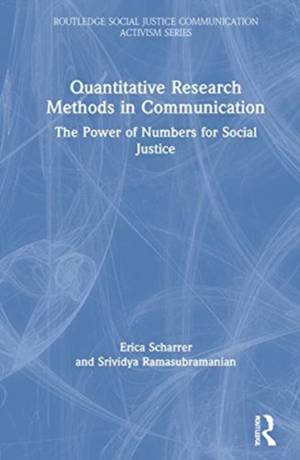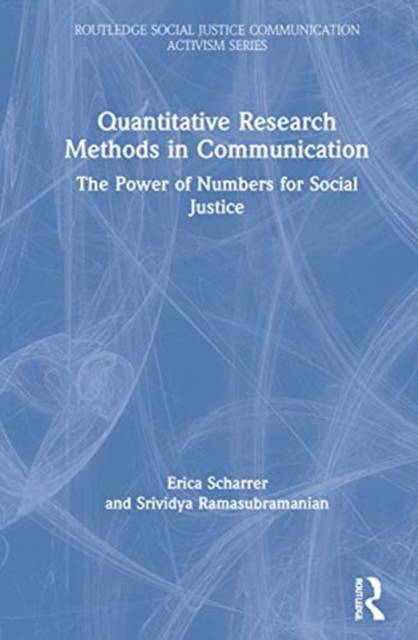
- Retrait gratuit dans votre magasin Club
- 7.000.000 titres dans notre catalogue
- Payer en toute sécurité
- Toujours un magasin près de chez vous
- Retrait gratuit dans votre magasin Club
- 7.000.000 titres dans notre catalogue
- Payer en toute sécurité
- Toujours un magasin près de chez vous
Quantitative Research Methods in Communication
The Power of Numbers for Social Justice
Erica Scharrer, Srividya RamasubramanianDescription
This textbook is an advanced introduction to quantitative methods for students in communication and allied social science disciplines that focuses on why and how to conduct research that contributes to social justice.
Today's researchers are inspired by the potential for scholarship to make a difference for society, to push toward more just and equitable ends, and to engage in dialogue with members of the public so that they can make decisions about how to navigate the social, cultural, and political world equipped with accurate, fair, and up-to-date knowledge. This book illustrates the mechanics and the meaning behind quantitative research methods by illustrating each step in the research design process with research addressing questions of social justice. It provides practical guidance for researchers who wish to engage in the transformation of structures, practices, and understandings in society through community and civic engagement and policy formation. It contains step-by-step guidance in quantitative methods--from conceptualization through all the stages of execution of a study, including providing a detailed guide for statistical analysis--and demonstrates how researchers can engage with social justice issues in systematic, rigorous, ethical, and meaningful ways.
This text serves as a core or supplementary textbook for graduate and advanced undergraduate courses in research methods for communication and social sciences and fills a gap for a methods text that is responsive to the desire of scholars to conduct socially impactful research.
Spécifications
Parties prenantes
- Auteur(s) :
- Editeur:
Contenu
- Nombre de pages :
- 362
- Langue:
- Anglais
- Collection :
Caractéristiques
- EAN:
- 9780367550356
- Date de parution :
- 14-05-21
- Format:
- Livre relié
- Format numérique:
- Genaaid
- Dimensions :
- 178 mm x 254 mm
- Poids :
- 865 g







